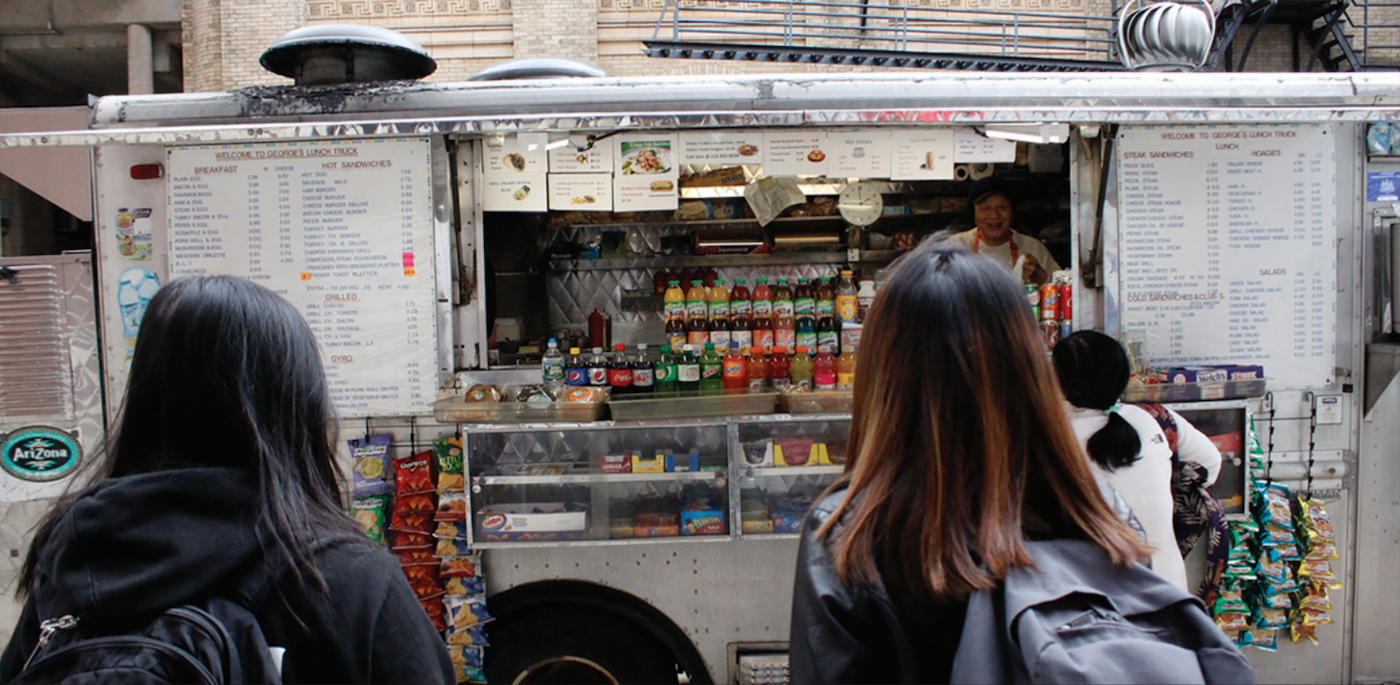
For the third time in the past five years, Drexel has tried to restrict food trucks on campus with the help of Philadelphia’s City Council. Right before the end of Fall Quarter in 2019, West Philadelphia Councilmember Jannie Blackwell introduced a bill at the request of Drexel that would ban the vendors on Market St. between 33rd and 34th streets. The university proposed removing food trucks from that location in order to improve public safety conditions and issues with high volumes of traffic. As compensation, the university would relocate these food trucks closer to the residence halls, where safer business could be conducted.
The requests to restrict food trucks has become a citywide movement over the years, which is especially encouraged by larger businesses that are feeling threatened. In 2019 alone, City Council passed two bills that banned street vendors on Spring Garden St. between Broad and 16th streets right on the Community College of Philadelphia’s campus as well as in the far northeast region of the city. As food truck vendors have noticed, the locations they are banned from are often highly frequented areas that guarantee successful business. By moving the vendors farther away from these areas, their profits dramatically decrease, threatening their businesses.
As a result of the previous bans, it did not take long for food truck vendors to react to the new legislation. On Dec. 10, the Philadelphia Mobile Food Association (PMFA) posted a petition on change.org titled “Tell Drexel and Philadelphia City Council to keep food trucks!” The petition stated, “This is one of the last open vending locations in the city of Philadelphia and it needs to be preserved.” The petition almost immediately caught the eye of the Drexel community as thousands started signing their names in solidarity with the vendors. When explaining why they signed the petition, one student stated, “In addition to being an important part of the local culture of Philadelphia, food trucks are an essential low-cost food option for not just undergraduates but also graduate students, staff and faculty.”
On Dec. 12, the PMFA showed up to the City Council session with the petition. Regardless, Blackwell decided to continue with the vote for the bill. Everyone but one councilwoman, Helen Gym, voted for the food truck ban. “Today’s city council session didn’t work in our favor,” reported the vendors on the online petition that day. The only thing that would be able to stop the bill from being executed was Mayor Jim Kenney.
Since Mayor Kenney was at the end of his four-year term, he was able to take advantage of the pocket veto. This trick basically allows the mayor to not sign bills he does not support at the end of his term, thus leaving them void at the start of the new year. The mayor pocket vetoed six bills, among them being the controversial food truck ban in University City. These were the first pieces of legislation passed through City Council that the mayor has rejected during his first term. In his letter to city legislators, Kenney wrote, “There has been a significant outcry against this bill from the affected community […] further discussion is warranted before imposing such a sweeping ban.”
In response to the mayor’s decision, the PMFA declared their petition a success, exclaiming “Thank you to everyone who supported our fight! You’ll continue to see trucks on 3300 Market into 2020!” The mayor’s unexpected decision was a victory for Philly food truck vendors and will possibly discourage the wave of street vendor bans in the city, at least for a little while.
